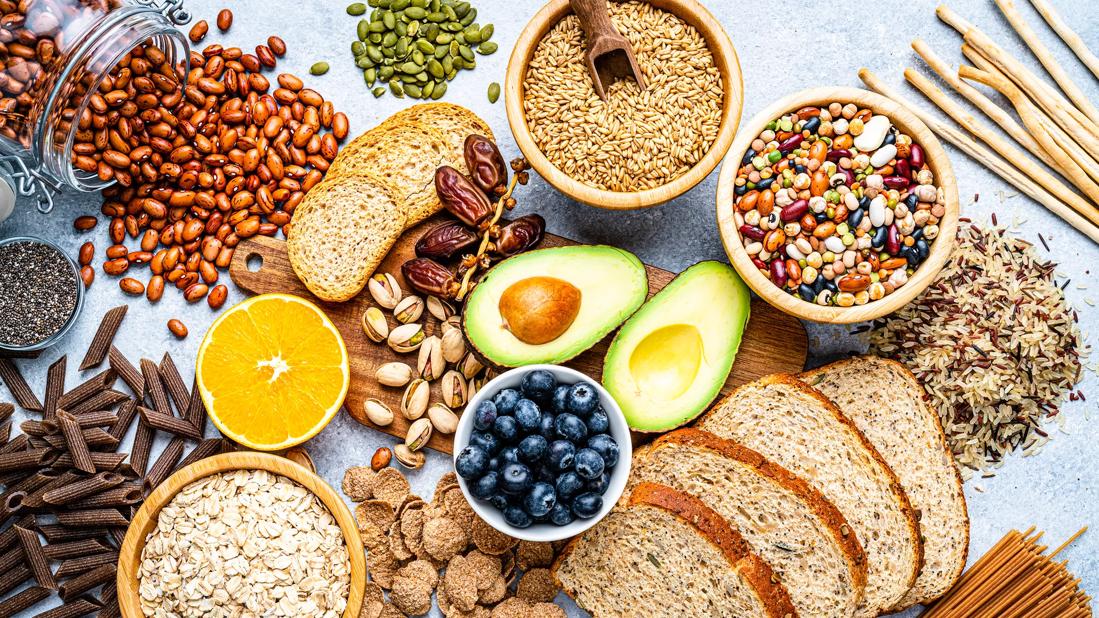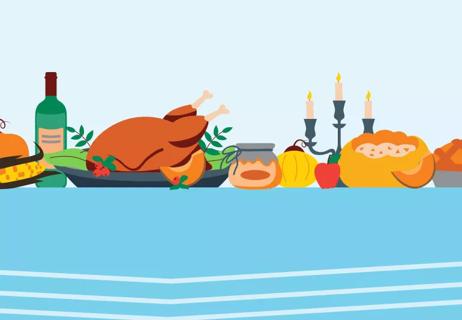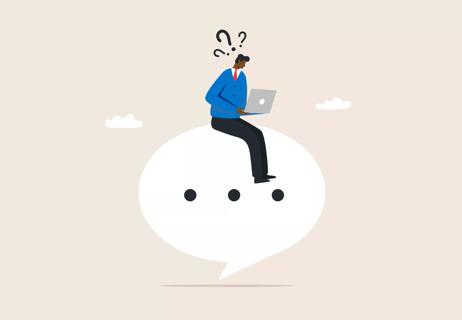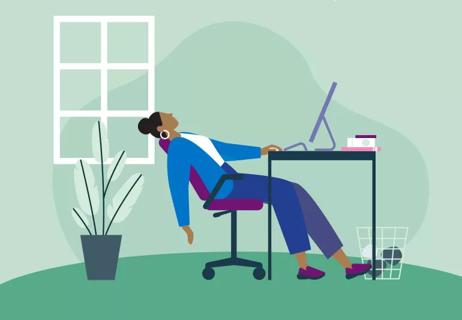What’s on your plate can either help power you through your day or put you in nap mode

When you pull up to a gas pump to fuel your vehicle, a decision awaits: Which octane gasoline will you put in the tank? Regular can get the job done, but midgrade or premium options might improve performance.
Advertisement
Cleveland Clinic is a non-profit academic medical center. Advertising on our site helps support our mission. We do not endorse non-Cleveland Clinic products or services. Policy
What you eat and drink works similarly for your body. Food and drink provide energy to keep you going, with some options being … well, “higher octane” than others.
So, what choices are best for your internal tank, and what grub might gum up your engine? Let’s run some diagnostics and take a look under the hood with registered dietitian Beth Czerwony, RD, LD.
Thanks to your metabolism, everything you consume — whether it’s an apple or a donut — gets converted into energy for your body. It’s a complex chemical process that never shuts down given your system’s constant demand for fuel.
But while all food and drink provide energy, they’re not equal in delivering a lasting power surge. Here’s what you can count on to fight fatigue and what can sap your strength.
There isn’t just one solution when it comes to foods that boost energy levels. The best eating plans feature a balanced diet filled with different types of nutrient-rich foods, emphasizes Czerwony.
These foods can be your energy building blocks.
Don’t be fooled by the name. Complex carbohydrates are easy to understand and even easier to work into your diet.
Foods considered complex carbs are often high in fiber and starch. These nutrients are more complex on a molecular level, which makes them more difficult for your body to break down and absorb.
Advertisement
That slow-moving process is ideal for maintaining a steady energy supply. “Complex carbs provide lasting energy,” shares Czerwony. “These are the types of foods that can get you through your day.”
Foods that are complex carbs include:
Complex carbs may be slow to digest, but proteins take even longer — which can make them valuable in the fight against fatigue. But the key is to eat leaner proteins.
That’s because processing proteins higher in fat content — marbled cuts of red meat, for instance — forces your body to work extra hard. That big effort by your belly can leave you drowsy.
“Eating leaner meats, like skinless chicken or fish like salmon or cod, can give you that protein boost without the tiredness,” says Czerwony.
You can find power-up protein choices away from the meat counter, too. Examples include:
Being tired might be a sign that you’re thirsty.
Even mild dehydration can cause feelings of fatigue, research shows. Low fluid levels in your body force your heart to work harder, slowly but surely sapping your energy.
“That’s one of the reasons why you’re more likely to get tired if you’re outside on a hot day,” explains Czerwony. “The importance of proper hydration can’t be emphasized enough. It helps everything in your body work more efficiently to keep you moving.”
The amount of fluid your body needs can vary by activity level, weather and location. (Learn more about daily fluid needs and why drinking eight glasses of water isn’t always the answer.)
We’ve focused so far on “high-octane” food and drink choices that can fuel your body and keep your motor running. But other dietary options aren’t quite as effective.
Here are a few.
Surprised to see “jolt juice” listed in this category? That’s understandable. Consuming caffeine offers a definite energy surge after all. Anyone who has fueled a late-night work session with coffee or energy drinks understands that concept.
But consuming caffeine has a downside, which is best summed up with this adage: What goes up, must come down.
Advertisement
A crash often follows a caffeine-induced energy spike, says Czerwony. Studies show that excessive sleepiness can be a byproduct of drinking caffeinated beverages once the effect wears off. (That negative aftermath worsens with the amount of caffeine you take in, too.)
Caffeine can also make sleeping more difficult — particularly if you get that jolt later in the day. That can eventually take a toll on your energy levels.
The key to caffeine is moderation. “If you need instant energy, caffeine can get the job done,” says Czerwony. “But too much of a good thing is still too much. It’s a losing battle if you always rely on caffeine for a pick-me-up.”
If “slow burn” describes how your body processes complex carbs, “flash flame” sums up what takes place with simple carbs.
As the name suggests, simple carbs aren’t all that complicated molecularly. This allows your body to quickly break down and digest simple carbs, rapidly elevating your blood sugar to bring an energy boost.
That rise is followed by a plummet, though, which can make you drowsy after a carb crash, shares Czerwony. (The effect is similar to coming down from a caffeine buzz.)
Foods that fall in the simple carb category include:
Advertisement
Knocking back beer, booze and wine can zap your energy one glass at a time.
The reason? For starters, neurons in your noggin fire a wee bit slower when alcohol starts to muddy your thinking. This downshift in brain activity brings a sedative effect that can leave you feeling lethargic, says Czerwony.
The negative effect on your energy levels doesn’t end there, though. Alcohol also can interfere with sleep after a night of imbibing, robbing your body of needed rest even after your head hits the pillow.
The toxic nature of alcohol robs your body of nutrients, which isn’t ideal for feeling bright-eyed and energized.
What’s on your plate is just one piece of a large puzzle for building energy. How much and how often you eat makes a difference, too. (For instance, big meals are apt to make you feel like napping. And skipping meals can drain your battery.)
Advertisement
How you live is also a factor. Regular exercise can give you more energy. Ditto for regularly getting enough sleep. Managing stress can keep you feeling chipper, too.
Bottom line? “Decisions you make every day go a long way toward determining how much energy you have,” says Czerwony. “The food you eat makes a big difference, but it’s not the only part.”

Sign up for our Health Essentials emails for expert guidance on nutrition, fitness, sleep, skin care and more.
Learn more about our editorial process.
Advertisement

Drink some water, take a little walk, step away from your computer and chat with a coworker, or even your toddler, to help ward off daytime sleepiness

Eating turkey is only a small part of the reason you want to take a nap

Carve out time for yourself — and cut down the number of decisions you make each day

If you’re worn down and sluggish, it can be more than just feeling exhausted

Sleepiness and lack of energy aren’t the same thing

Practical solutions for fighting flagging energy

Don’t be misled by bogus answer to fatigue

A Q&A to help you fight exhaustion and get more sleep

Even small moments of time outdoors can help reduce stress, boost mood and restore a sense of calm

A correct prescription helps your eyes see clearly — but as natural changes occur, you may need stronger or different eyeglasses

Both are medical emergencies, but they are very distinct events with different causes